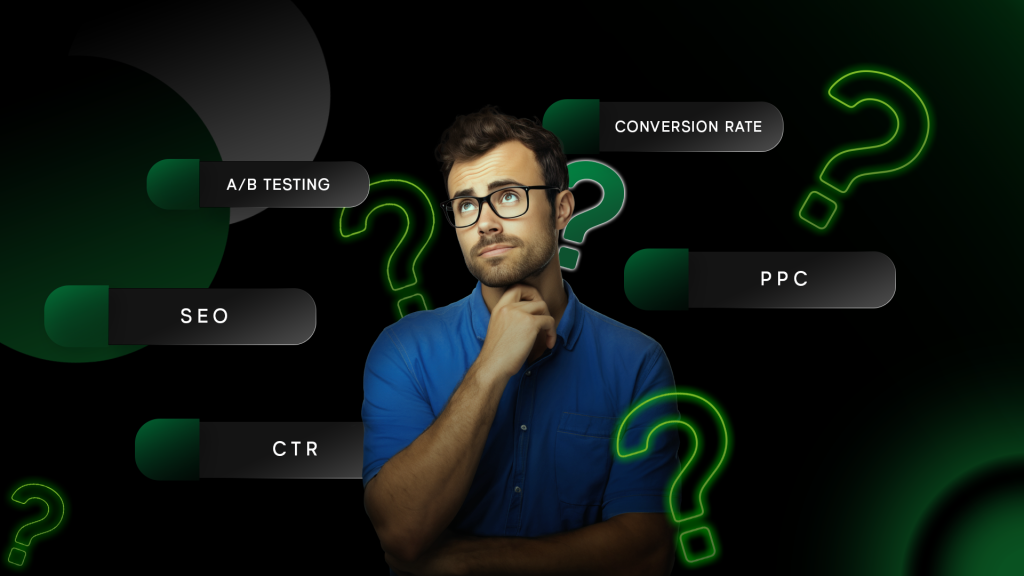The world of digital marketing can feel like a different language at times, filled with acronyms and jargon. But fear not! This guide is here to break down some of the most common terms you’ll encounter, making you a digital marketing whiz in no time
SEO (Search Engine Optimization)
Imagine you have a fantastic store, SEO is like putting up bright lights and clear signs to make sure people can easily find your store online. The higher you rank, the more organic traffic (free visitors) you’ll attract.
PPC (Pay-Per-Click):
This is like renting a billboard on a busy street to get people to your store. With PPC advertising, you pay a fee each time someone clicks on your ad. Popular platforms like Google Ads allow you to target specific audiences with laser precision, driving high-quality traffic to your website.
CTR (Click-Through Rate):
This metric measures how effective your ads or website links are. It’s calculated as the percentage of people who see your ad or link and actually click on it. A higher CTR indicates that your message is resonating with your audience and enticing them to take action.
Conversion Rate:
Not everyone who walks into your store will buy something. Similarly, not everyone who clicks on your website will convert into a customer (by making a purchase, signing up for a newsletter, etc.). The conversion rate tells you what percentage of your website visitors take that desired action. By analyzing your conversion rate, you can identify areas for improvement and optimize your website to turn more visitors into customers.
ROI (Return on Investment):
This is the ultimate question for any marketer: are we getting our money’s worth? ROI measures the profitability of your marketing efforts. It takes the revenue generated from your marketing campaigns and divides it by the cost of those campaigns.
CRM (Customer Relationship Management):
A CRM system helps you manage all your customer interactions and data. This allows you to personalize your marketing efforts and provide a better customer experience.
Landing Page:
This is a single, focused web page designed to convert visitors into leads or customers. Landing pages typically have a clear call to action (e.g., sign up for a free trial, download a white paper)
A/B Testing:
This involves creating two variations of a webpage (ad, email) and testing which one performs better with your audience. By constantly testing and iterating, you can optimize your marketing materials for maximum impact.
Analytics:
Tracking and analyzing data from your website, social media, and marketing campaigns is crucial for understanding what’s working and what’s not. This data empowers you to make informed decisions and optimize your marketing strategy for better results
Remarketing:
This strategy targets users who have previously interacted with your website or brand. For instance, you might see ads for a product you recently viewed online. Remarketing helps to stay top-of-mind with potential customers and nudge them further down the sales funnel
Programmatic Advertising:
This involves using automated software to buy and sell ad space across the web, allowing for more efficient and targeted advertising campaigns.
Content Management System (CMS):
A platform like WordPress that allows you to easily create, edit, and publish content on your website, even without extensive coding knowledge.
With a solid understanding of these digital marketing terms, you’re well on your way to navigating the online landscape with confidence. This knowledge will equip you to make informed decisions and take control of your digital marketing strategy
